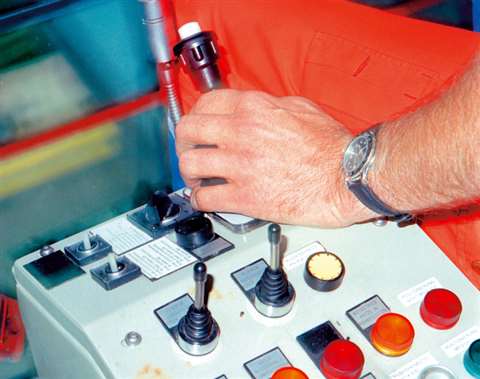Flexible finance
23 February 2015

Brian Foster, head of industry finance at Siemens Financial Services discusses how companies can maximise their business opportunities by upgrading their equipment.
The UK economy is going from strength to strength. According to the Office for National Statistics, the economy grew 3.2 % between the second quarter of 2013 and the same period this year – the fastest pace of expansion for six years.
Forecasts from the International Monetary Fund expect UK GDP to increase by 3.2 % in 2014, outstripping every other member of the G7 group of countries. Favourable economic conditions and rising confidence amongst businesses have also contributed to an upswing in the construction industry, a sector that was particularly hard hit in the aftermath of the financial crisis. In September, the Markit/CPIS construction purchasing managers’ index reached 64.2, well above the 50 mark that separates expansion from contraction, consolidating a sharp expansion of construction output for eight months.
Positive outlook for the construction sector is being witnessed further by the Construction Products Association. It expects the industry to grow by 10 % and add about £11 billion (US$ 16 billion) to the economy over the next two years. The Association expects construction output to grow 4.7 % in 2014 and 4.8 % in 2015, with total output rising 22.2 % over the next five years.[1] Clearly, these figures suggest a promising future for the construction sector, especially for plant hire companies in general and crane rental firms in particular. The emerging opportunities, however, can only be fully seized if businesses are prepared to make an investment to service the rising demand.
Bank borrowing
The drastic slump experienced by the construction industry in 2008 and 2009 discouraged many rental firms from expanding or upgrading their equipment fleet. Now that the sector is showing signs of renewed health, these businesses might finally be contemplating capital expenditure, but see their investment intentions being thwarted by the continued restricted access to traditional bank borrowing. Latest data from the Bank of England shows that the annual rate of growth in the stock of lending to both small and medium-sized enterprises (SMEs) and large businesses remained negative in the three months to May 2014. [2]
To benefit from the construction industry uptick, rental companies serving the sector need to build up their service capacity to respond to the growing demand. High performance equipment, and indeed the quick provision of additional equipment capacity, in-depth sector expertise and experience, are crucial to securing lucrative large-scale projects. Given that construction is a capital-intensive industry, the acquisition of construction equipment can represent a major financial challenge for many rental companies (usually medium-sized enterprises), especially since affordable bank credit is currently harder to come by for this segment of the UK business community. Forward-looking businesses are, therefore, increasingly turning to specialist asset financiers, in particular those with an industrial background, for financial support.
Finance specialists
Such specialist financiers often exhibit a greater willingness to provide funding than traditional banks because of their understanding of the equipment and the benefits it brings. Their industrial expertise and sector knowledge allow them to evaluate the quality of the financed assets, business models, projected commercial return, and any potential risks involved. As a result, they can craft customised financing arrangements that accommodate customer’s individual requirements and cash flow needs. These finance specialists also have the ability to flex the finance period itself, finance set-up periods, and offer other value-added services. Since regular lease payments can be spread over the fnancing period and aligned with the revenues generated by the asset, rental companies can comfortably acquire and upgrade equipment in an affordable way to secure competitive advantage.
Even though the construction industry has yet to return to its pre-crisis level, with the improving economy and increasing business optimism, the sector is likely to continue its upward path. Equipment rental companies wishing to capitalise on the industry upswing need to ensure that they have the capacity to take on more work and to further expand their businesses. The smart application of asset finance allows them to make the much-needed investment spending to equip and upgrade their fleet without tying up precious capital, thereby increasing the financial efficiency that is indispensable for every successful modern business.
Baldwins Crane Hire
Effective use of asset finance can help construction plant rental companies expand and update their equipment fleet without putting undue strain on finances. Baldwins Crane Hire Ltd, a large UK crane rental and industrial removals business, has updated its crane fleet with the acquisition of a Liebherr LTM 1500-8.1 mobile crane through a seven-year finance lease. The £2.6 million ($3.8 million) financing arrangement aligned monthly finance payments with the cash flow generated by the crane, making the investment affordable without exhausting the company’s own financial resources. The facility also took into account a significant residual value of the asset at the end of the financing period. With the application of this mobile crane ranging from lifting bridges into position, through industrial plan installations to refurbishment of oil refineries or power stations, the acquisition has allowed Baldwins Crane Hire to expand business operation, meet the diverse needs of its customers and maintain a competitive edge.
References
[1] The Construction Products Association, Summer Forecasts, 04 August 2014


